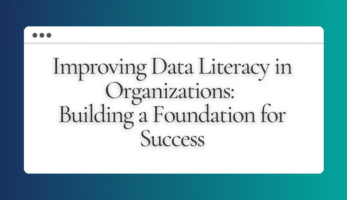Human Resources
HR Challenges in Higher Education

Students in the United States have a choice of nearly 4,000 higher education institutions to complete their studies. While having more options benefits students, institutions are under greater pressure to remain competitive.
Human resources (HR) leaders are pivotal in attracting and retaining top talent to drive institutional success. Our guide will explore some common staffing challenges facing HR in higher education and some practical strategies to overcome these obstacles.
Employee Retention in Higher Education
Employee retention is one of the most fundamental higher education HR challenges. Overwhelming workloads, low compensation and a lack of flexible working arrangements are common reasons for resignations among staff.
HR teams can better understand the specific reasons behind staff turnover by conducting exit interviews. By combining a selection of standardized and unstructured questions, they can identify key trends and gain unique insights. HR can then use this information to develop strategies to create a better employee experience and boost retention rates.
Diversity and Inclusion
Developing students’ critical thinking skills is a priority for many higher education institutions. A diverse workforce helps to achieve this goal, as faculty members with different abilities, languages and cultures offer unique perspectives. However, HR leaders need to ensure an inclusive environment to ensure these differences do not lead to conflict. Here are some best practices to consider:
- Create a diversity and inclusion strategy: Outlining your diversity goals helps you develop a roadmap to achieve them. Establish timeframes and determine who is responsible for goal completion.
- Review and update core documents: Employee policies and job descriptions may contain unconscious bias. Review them regularly to ensure they are inclusive.
- Select a diverse hiring team: By appointing a diverse hiring team, you ensure a more objective lens during résumé selection and interviews. This results in recruiting a more multicultural staff.
- Provide institute-wide training: Employees on all levels will benefit from continuous training. Areas you may want to focus on are pronoun usage in the workplace, allyship and inclusive leadership.
- Track your progress: From time to time, review your progress and determine if your team is on track to achieve your goals. Consider conducting employee interviews or requesting anonymous feedback to gain a deeper understanding.
Compensation Strategies
Higher education institutions rely on multiple funding sources to run their operations. However, most of their funding comes from federal, state and local governments.
Over the last decade, government bodies have continuously reduced their funding to higher education institutions, impacting employees’ compensation. The National Education Association confirms this in a survey indicating a 1.6% salary drop.
While HR has limited control over funding, they can address compensation challenges in the following ways:
- Create specific pay guidelines: Policies indicating pay structures, increases and bonuses help ensure all workers receive fair compensation. Making the policies accessible to all staff also enables greater transparency.
- Perform compensation audits: An employee’s role may evolve over time, resulting in them taking on more tasks and responsibilities. Routine audits help HR base employees’ salaries on the work they perform.
- Provide training on pay equality: Managers may have unconscious biases that lead to pay discrepancies. Proper pay equity training opportunities can help leaders make more objective decisions.
Salaries are crucial to compensation, yet employees also consider benefits such as health care and pension contributions when they receive a job offer. HR can create a more attractive compensation package by researching which benefits employees value the most.
Performance Management

One of the most significant higher education challenges for HR is evaluating staff performance. As institutions employ a wide range of employees, it can be difficult to determine standardized performance criteria. In addition, staff often have varying responsibilities, making fair evaluations even more complex.
Establishing different performance metrics for each role and communicating the criteria to employees helps to mitigate this challenge. HR can also encourage objectivity by using the following tactics:
- Train evaluators: Managers may value certain employees over others, impacting the validity of evaluations. Providing relevant training can help them to recognize personal prejudices.
- Promote self-assessment: By including a self-assessment section in performance evaluations, HR can better understand a worker’s performance. Self-assessments can also enhance accountability.
- Consider other forms of feedback: Soliciting peer and student feedback gives more context to an employee’s performance. Enabling people to submit their insights anonymously helps to ensure greater honesty.
Change Management in Higher Ed
Change management in the higher education sector refers to shifts in leadership or organizational structure. Common factors behind these changes include technology advancements, budget cuts or evolving student needs.
People are often resistant to change, making it one of the biggest HR challenges in higher ed. Some best practices to ensure a smoother transition include:
- Involve stakeholders: Asking all levels of staff to share their insights on proposed changes helps them feel included in the process.
- Prioritize communication: People often avoid change because they fear the unknown. Encouraging frequent and clear communication helps to ease people’s minds.
- Monitor progress: Create criteria to measure the impact of the changes on your institution. Periodically measure your progress against these objectives.
Mental Health Support for Employees
Mental health affects approximately one in five Americans each year. Given the odds, some of your faculty members will likely experience mental health challenges during their careers.
HR can help overcome this challenge by creating relevant mental health initiatives. Some examples include:
- Make resources accessible: Whether it’s a mental health brochure or some complimentary sessions with a specialist, making resources available to your workforce empowers them to take action.
- Host mental health workshops: Offering mental health training sessions helps employees recognize the signs of burnout or emotional crises and seek support. In addition, training can help break mental health stigmas.
- Advocate for a healthy life and work balance: Life and work commitments command a significant amount of time. Allowing employees some flexibility helps to ensure a healthy and happy balance.
Remote Work Policies
Remote work opportunities offer many benefits for employees, such as greater flexibility and improved work-life harmony. As there’s no need to commute to the office, they can also lower staff and student transportation expenses.
While many students enjoy in-person lectures, there is a growing demand for online classes that allow staff to take advantage of remote work schedules. HR can support staff by ensuring access to technology and a reliable Wi-Fi network. In addition, they can provide resources on how employees can manage their routines and overcome distractions in their home setting. Establishing clear remote policies is key for a smooth transition to digital learning.
Strengthen Your HR Team with Exude Human Capital
Acknowledging the numerous HR challenges in the education sector helps your team establish strategies to overcome these obstacles. While this guide offers some helpful tactics, institutions benefit most from expert assistance.
Exude Human Capital is a consulting firm that specializes in HR training. If you’re looking for ways to support your team in navigating the HR challenges in higher education, reach out to us today!








